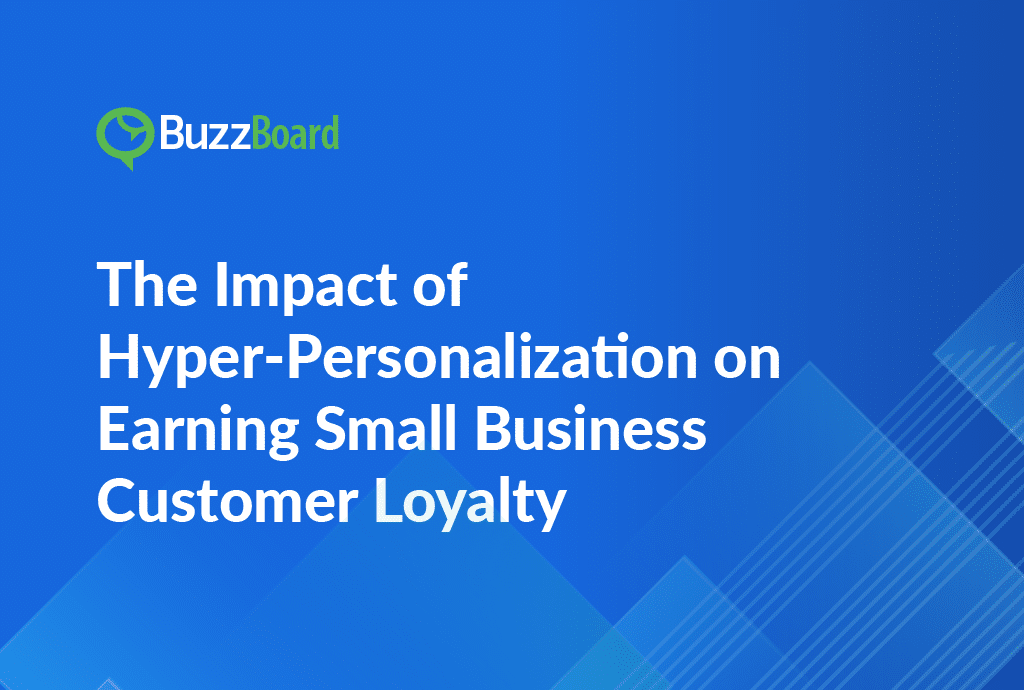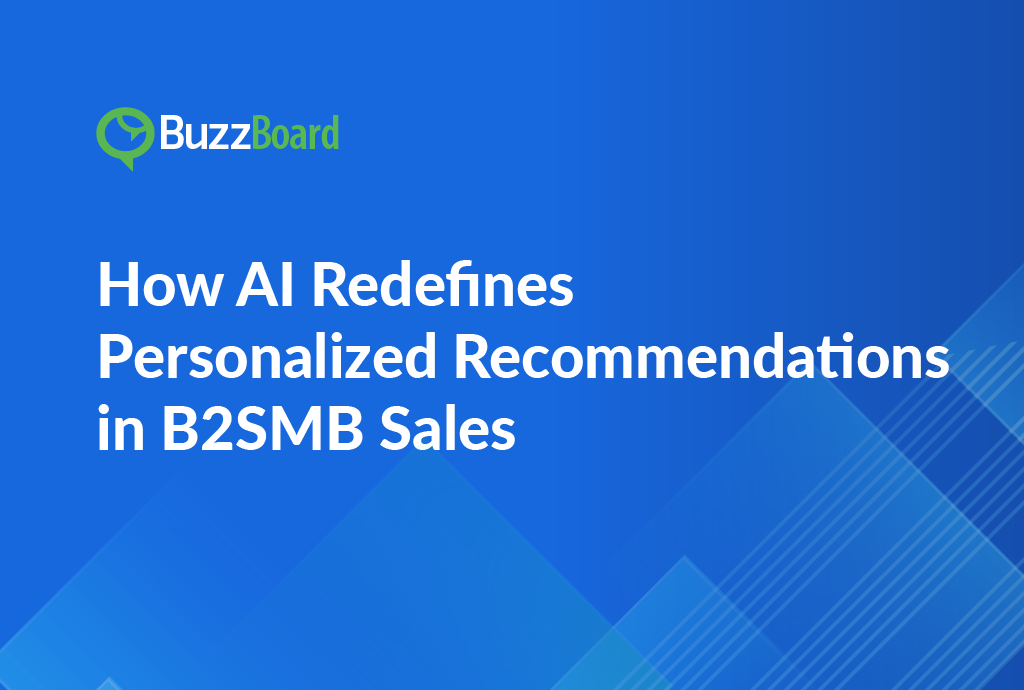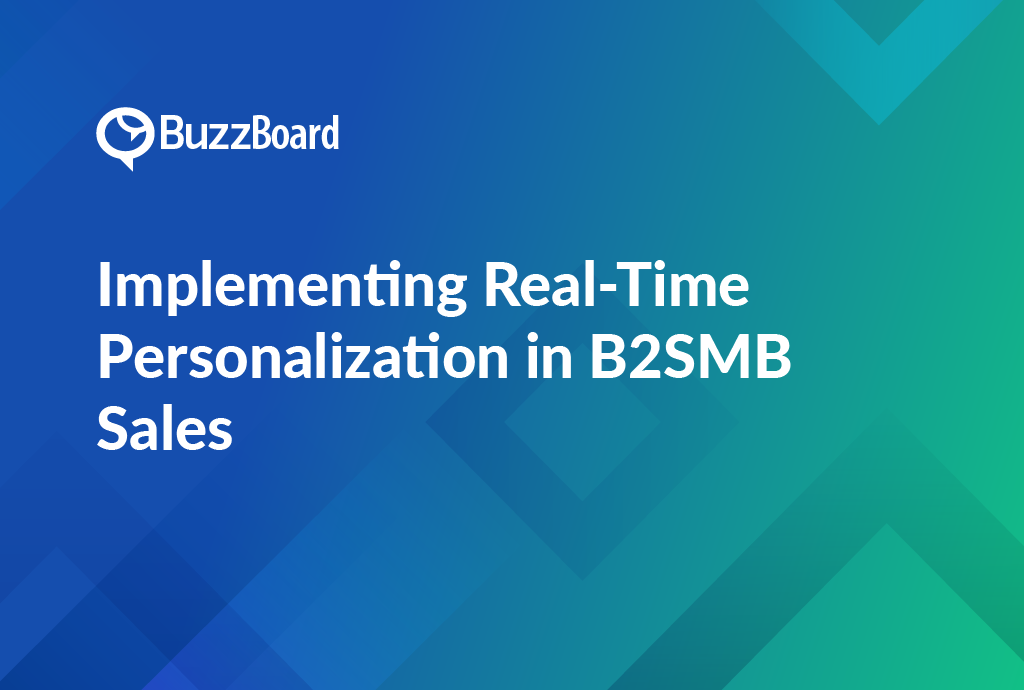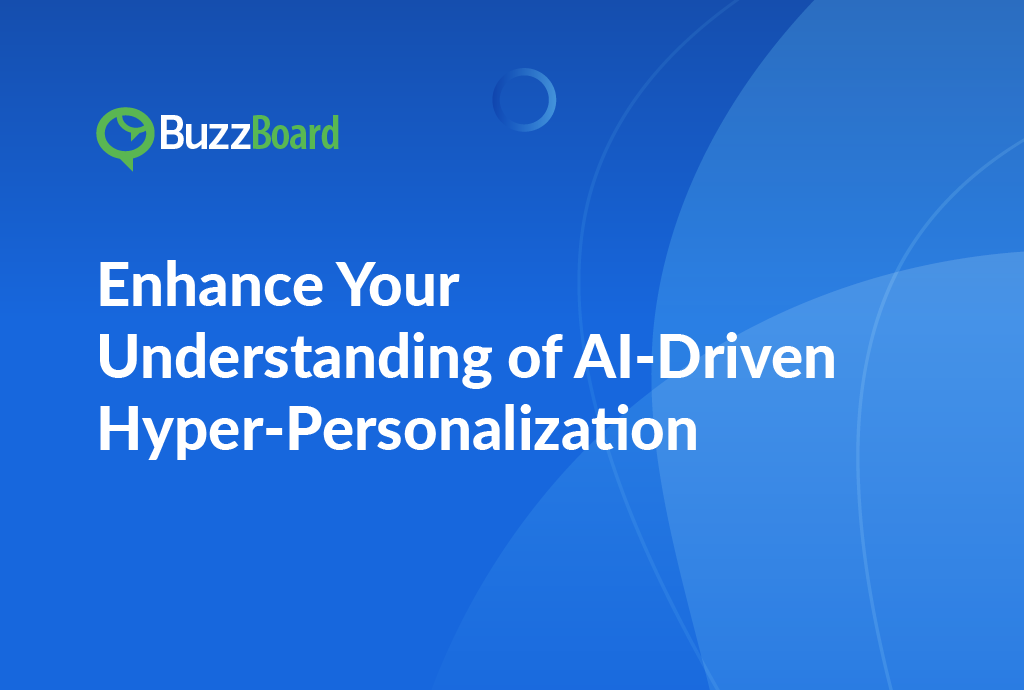The world of SMB marketing is quite dynamic. That’s why the strategic use of hyper-personalization has emerged as a game-changer to build customer loyalty for sales professionals catering to small and local businesses. But what are its impacts on customer relationships? This blog will help you explore the massive influence of hyper-personalization on customer loyalty, delve into the role of generative AI, and provide real-world examples of companies that have successfully used hyper-personalization to build enduring connections with their small business clientele.
Unleashing the Potential: Hyper-Personalization and Customer Loyalty
More than just another trend, hyper-personalization is a paradigm shift in digital advertising. At its core, hyper-personalization involves tailoring content, messaging, and experiences to the unique preferences, behaviors, and needs of individual users. When seamlessly integrated with customer loyalty strategies, hyper-personalization becomes a powerful tool for building lasting relationships, fostering brand allegiance.
The Role of Generative AI in Hyper-Personalization
Generative AI, a subset of artificial intelligence, is the driving force behind hyper-personalization. This technology employs sophisticated algorithms to analyze user data, enabling marketers to dynamically generate content that resonates on an individual level. In the context of building customer loyalty, generative AI ensures that every interaction feels tailored, fostering a sense of connection and appreciation.
A Detailed Guide to Leveraging Hyper-Personalization for Customer Loyalty
In order to implement hyper-personalization for building customer loyalty requires a strategic approach. For sales reps, here are the actionable steps to leverage hyper-personalization for customer loyalty:
1. Understand Customer Audience to Build Loyalty
You can start by gathering a deep understanding of your target audience. Collect and analyze data related to demographics, preferences, and behaviors. This data serves as the foundation for crafting personalized experiences that resonate with individual users.
2. Define Your Goals for Building Customer Loyalty
Clearly define your goals for building customer loyalty. Whether it’s increasing repeat purchases, encouraging brand advocacy, or fostering long-term relationships, having well-defined objectives guides your hyper-personalization efforts.
3. Choose the Right Tools to Build Customer Loyalty
Select tools and technology that facilitate hyper-personalization in your customer loyalty programs This includes generative AI platforms, customer relationship management (CRM) systems, and marketing automation tools. Ensure seamless integration with existing systems to enhance efficiency.
4. Segment Your Customer Audience
Segmenting your audience based on shared characteristics or behaviors allows for more precise content customization, ensuring that each segment receives personalized content aligned with their specific needs and preferences. Be clear that building customer loyalty is about engaging with existing customers, and this is different from engaging with prospects who are not yet your customers.
5. Craft Personalized Customer Loyalty Experiences
Embrace generative AI to craft dynamic and personalized experiences. This could involve customized product recommendations, tailored messaging, and content that evolves based on user interactions. Personalization should extend across various touchpoints, including emails, social media, and website interactions.
6. Measure, Monitor, and Optimize Continuously
Implementing hyper-personalization is a continuous process. Continuously monitor performance metrics, conduct A/B testing, and use the insights gained to make informed adjustments. With optimization, you can make sure that your hyper-personalization strategy stays effective over time.
Companies Building Customer Loyalty with Hyper-Personalization: Real-World Examples
Take a peek into real-world examples of companies that sell to small businesses and have successfully used hyper-personalization to build customer loyalty:
1. Mailchimp
Mailchimp, a widely-used email marketing platform, has incorporated hyper-personalization to enhance customer loyalty. They leverage customer data to provide personalized email recommendations, ensuring that each communication feels tailored to the unique needs of small businesses.
2. Square
Square, a financial services and mobile payment company, uses hyper-personalization to build customer loyalty among small businesses. By analyzing transaction data, Square provides personalized insights and recommendations, fostering a sense of partnership with their small business clients.
3. Shopify
Shopify, an e-commerce platform, has embraced hyper-personalization to enhance customer loyalty for small businesses. Through personalized product recommendations, targeted promotions, and dynamic storefronts, Shopify creates a tailored experience that resonates with individual business owners.
Ways to Tailor Hyper-Personalization for Targeting Small and Local Businesses
The following will help you grasp how enterprise-level hyper-personalization can be tailored for small and local businesses:
1. Local Community Engagement
Emphasize local community engagement in your hyper-personalization strategy. Incorporate local events, trends, and preferences into your communications to create a sense of connection with the community.
2. Affordable Solutions
Highlight the affordability of your products or services for small businesses. Use hyper-personalization to showcase cost-effective solutions and provide personalized recommendations that align with the budget constraints of small businesses.
3. Self-Education and Upgradation
In an environment where customer loyalty is paramount, B2SMB sellers should become adept at utilizing AI-driven insights, so that they can anticipate the evolving requirements of their clientele. Educating oneself on artificial intelligence and hyper-personalization is a necessity. It positions reps as partners in growth, equipped to navigate the unique challenges faced by small businesses and fostering sustainable relationships built on mutual understanding and value.
How Successful Hyper-Personalization Impacts Customer Loyalty: Decoded in Steps
Enhanced Customer Experience: Hyper-personalization tailors every interaction to individual preferences, behaviors, and needs. This creates a seamless and satisfying experience for customers, making them feel understood and valued. When customers consistently encounter personalized offerings that resonate with their interests, they’re more likely to stay engaged and loyal to the brand.
Building Trust and Rapport: Understanding a customer’s preferences and anticipating their needs fosters trust. When a business consistently delivers relevant recommendations or content, it reinforces the perception that the business genuinely cares. This trust becomes the bedrock for sustained loyalty.
Increased Engagement and Relevance: Hyper-personalization ensures that every communication, whether it’s an email, advertisement, or product recommendation, is relevant to the individual customer. This targeted approach, be it in the case of a small, local business or a medium-sized business, increases the likelihood of engagement. This is because customers are more inclined to interact with personalized content that aligns with their interests.
Customer Retention and Advocacy: Customers are more likely to remain loyal over time when they feel valued and understood. Satisfied customers not only continue to patronize the business but also become advocates, spreading positive word-of-mouth and influencing others to engage with the brand.
Adaptability and Long-Term Relationships: Hyper-personalization isn’t static; it evolves as customer preferences change. Businesses that continuously adapt and refine their personalization strategies maintain a dynamic relationship with customers, ensuring relevance over the long term.
In SMB marketing, the fusion of hyper-personalization and customer loyalty is a winning combination. For sales professionals selling digital products to small and local businesses, understanding the potential of hyper-personalization is a strategic imperative. By welcoming generative AI and drawing inspiration from successful examples, reps can lead the way in delivering personalized solutions that not only drive engagement but also build enduring customer loyalty. Always remember that the true power lies in creating experiences that resonate on an individual level… experiences that leave a lasting impact on your small business clients.








